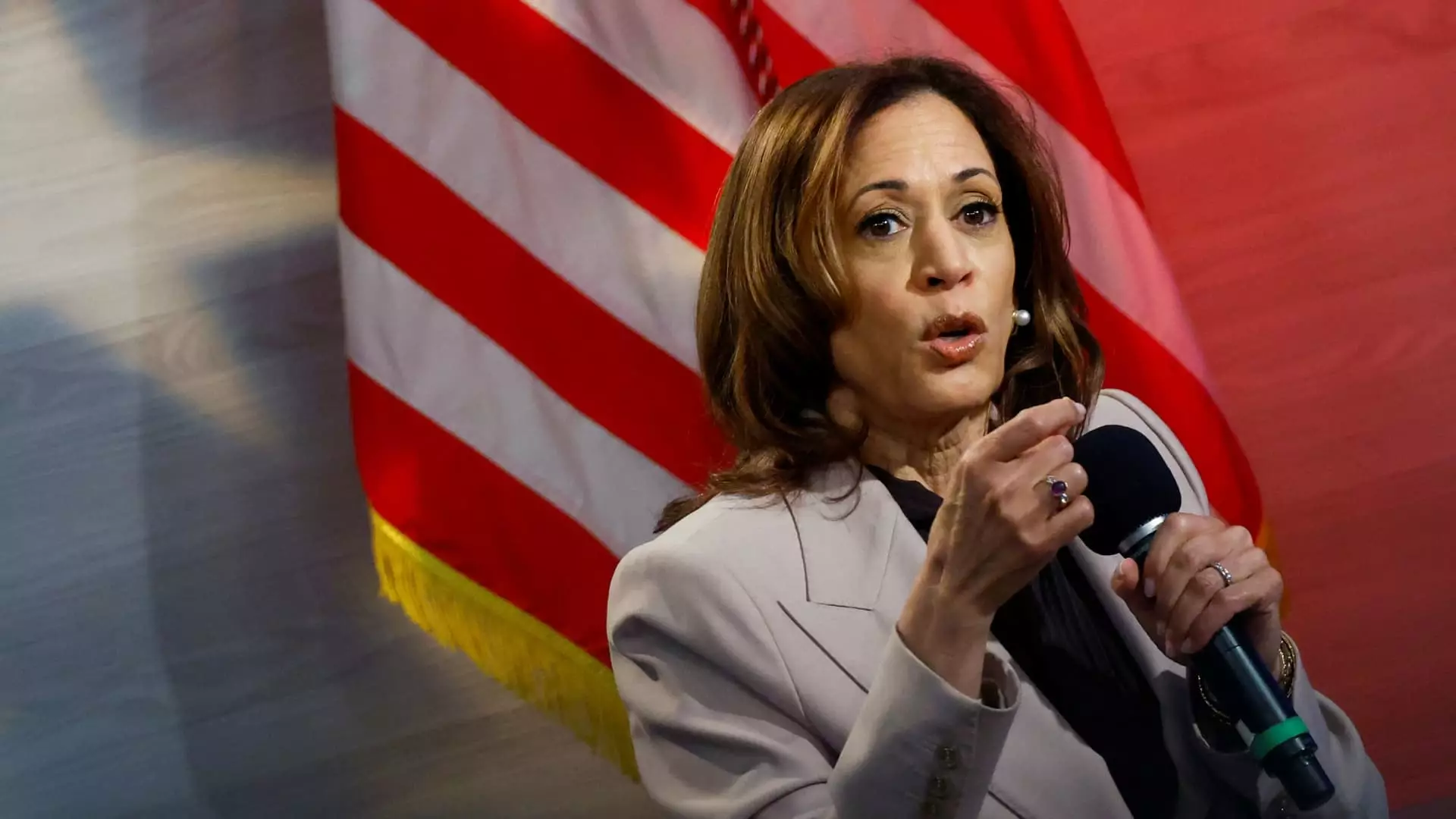In the evolving narrative of American politics, the importance of engaging diverse voter demographics cannot be overstated, particularly when it comes to pivotal groups like young Black men. Recent data indicate that this demographic, historically inclined to support Democratic candidates, shows a concerning shift towards the Republican Party, exemplified by support for figures like former President Donald Trump. In response to this growing trend, Vice President Kamala Harris, during her recent engagement with the National Association of Black Journalists, articulated a comprehensive plan aimed at addressing the economic concerns of young Black men—a demographic that is increasingly critical in shaping electoral outcomes.
Harris emphasized her commitment to not take the support of Black voters for granted. “I think it’s very important to not operate from the assumption that Black men are in anybody’s pocket,” she declared, underscoring the necessity to earn trust and votes through concrete actions rather than mere assumptions. This sentiment is particularly crucial given recent findings from a NAACP poll, which revealed that over 25% of Black men under the age of 50 now express support for Trump, indicating a potential fracture in the traditional Democratic base.
Evolving Economic Proposals
To reconnect with young Black men, Harris’s strategy revolves around robust economic proposals designed to address systemic inequities. Referencing her earlier initiatives before the election cycle began, Harris detailed an “economic opportunity tour” targeting Black communities, signaling her deepened focus on fostering entrepreneurship among this demographic. A significant component of her proposal includes increasing funding for community banks, thereby enhancing access to startup capital—an essential factor for aspiring entrepreneurs who often face barriers in securing financial backing.
She elaborated on the entrepreneurial spirit flourishing within Black communities but lamented the lack of access to necessary resources. “We have so many entrepreneurs in the community who do not have access to capital,” she insisted, highlighting a critical barrier that her proposals aim to dismantle. By ensuring that innovative ideas have a pathway to funding, Harris hopes to stimulate economic growth and empower aspiring business owners.
Moreover, she proposed a $50,000 tax deduction for small businesses and the removal of medical debt from credit scores. These measures are not mere economic statistics; they are means of addressing the historical inequities faced by Black communities. By alleviating some of the financial burdens that disproportionately impact this demographic, Harris believes that economic empowerment will equate to societal upliftment: “When they do better economically, we all do better,” she asserted, embodying a philosophy that resonated with many in attendance.
As the Biden-Harris administration continues navigating the lingering effects of the pandemic and the subsequent economic recovery, public sentiment surrounding the economy remains a significant concern. High inflation rates and the rising cost of living have overshadowed any potential gains from the previous administration’s policies, including those championed by Trump. Polling data shows that while Biden previously garnered an impressive 92% of the Black vote in 2020, the possibility of losing a quarter of this critical demographic poses a significant threat to the Democratic Party’s electoral prospects.
Harris’s push for economic relief thus becomes essential not just for garnering votes but for restoring faith among Black voters who may feel disillusioned by the current socio-economic climate. As she campaigns on the promise of economic relief, it becomes increasingly clear that this outreach is about more than just numbers—it’s about rebuilding relationships strained by unmet expectations.
In a politically charged atmosphere, tensions remain high, especially with opposition figures like Trump drawing on contentious narratives. Trump’s alleged racially insensitive comments have drawn ire across the political spectrum, leaving Harris to navigate an environment rife with divisiveness and disrespect. In her remarks about Trump’s NABJ interview, she highlighted a persistent theme of disrespect that could potentially galvanize voters who seek more than just political rhetoric—they yearn for respect, relevance, and representation.
In light of these challenges, Harris’s focus on economic empowerment serves as both a tactical maneuver and a moral imperative. By prioritizing the voices and needs of young Black men, she not only addresses a crucial political vulnerability but also presents a compelling case for broader inclusion and understanding in American politics.
In a landscape where socio-economic factors increasingly dictate political allegiance, Harris’s economic initiatives could serve as a vital bridge to reclaiming the confidence of a vital voter bloc. Ultimately, the real task lies in transforming proposals into actions that resonate deeply with the experiences and aspirations of young Black men, ensuring that they do not just feel recognized, but actively supported within the political fold.


Leave a Reply